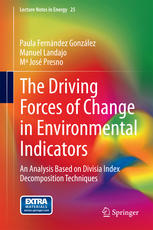

Most ebook files are in PDF format, so you can easily read them using various software such as Foxit Reader or directly on the Google Chrome browser.
Some ebook files are released by publishers in other formats such as .awz, .mobi, .epub, .fb2, etc. You may need to install specific software to read these formats on mobile/PC, such as Calibre.
Please read the tutorial at this link: https://ebookbell.com/faq
We offer FREE conversion to the popular formats you request; however, this may take some time. Therefore, right after payment, please email us, and we will try to provide the service as quickly as possible.
For some exceptional file formats or broken links (if any), please refrain from opening any disputes. Instead, email us first, and we will try to assist within a maximum of 6 hours.
EbookBell Team

4.1
40 reviewsThis book addresses several index decomposition analysis methods to assess progress made by EU countries in the last decade in relation to energy and climate change concerns. Several applications of these techniques are carried out in order to decompose changes in both energy and environmental aggregates. In addition to this, a new methodology based on classical spline approximations is introduced, which provides useful mathematical and statistical properties. Once a suitable set of determinant factors has been identified, these decomposition methods allow the researcher to quantify the respective contributions of these factors. A proper interpretation of findings enables the design of strategies and a number of energy and environmental policies to control the variables of interest. This book also analyses the impact of several factors that allow control of these variables; among them, assessment of the specific contribution of improved energy efficiency is particularly relevant. A number of divisia-index-based techniques for decomposing changes in a generic indicator are now available, and these range from classical techniques based on Laspeyres and Paasche weights to more refined approaches relying on logarithmic mean weighting schemes. This book is intended for undergraduates and graduates of energy economics and environmental sciences, environmental policy advisors, and industrial engineers.